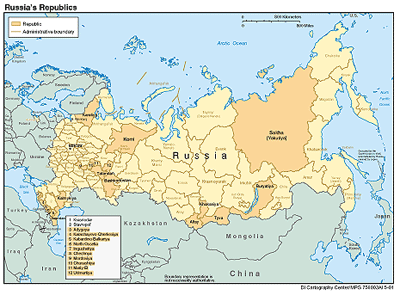Slowly but Surely: The Duma Elections Will Promise No Great Surprises, But Analysts Are Taking the Long View
 The days are dwindling down to the elections, and no one has really decided yet what to expect from them. It is unlikely that we will see an electoral revolution in Moscow - the most exciting thing that may happen is United Russia losing its constitutional majority, and only real question for the elections is how far United Russia's polling numbers have dropped in recent months. While experts are maintaining realistic expectations as to the results of this round of elections, they are seeing a larger trend: the Kremlin may be able to maintain control through these elections, but the clear trend is moving away from the political stability of the past decade.
In recent weeks there has been growing evidence and discussion of United Russia's slipping popularity among Russians. Besides the growing popularity of the "party of crooks and thieves" moniker and mixed reactions to what many saw as Putin being booed at a recent MMA title match at Olympisky Stadium, there is a real sense, at least in Moscow, that the vitriolic but muted distaste for United Russia is starting to come out into the open. Despite that, leading analysts said in some of their last predictions before this Sunday's elections that Russia is unlikely to see anything close to a major change in the electoral makeup in the coming Duma.
The days are dwindling down to the elections, and no one has really decided yet what to expect from them. It is unlikely that we will see an electoral revolution in Moscow - the most exciting thing that may happen is United Russia losing its constitutional majority, and only real question for the elections is how far United Russia's polling numbers have dropped in recent months. While experts are maintaining realistic expectations as to the results of this round of elections, they are seeing a larger trend: the Kremlin may be able to maintain control through these elections, but the clear trend is moving away from the political stability of the past decade.
In recent weeks there has been growing evidence and discussion of United Russia's slipping popularity among Russians. Besides the growing popularity of the "party of crooks and thieves" moniker and mixed reactions to what many saw as Putin being booed at a recent MMA title match at Olympisky Stadium, there is a real sense, at least in Moscow, that the vitriolic but muted distaste for United Russia is starting to come out into the open. Despite that, leading analysts said in some of their last predictions before this Sunday's elections that Russia is unlikely to see anything close to a major change in the electoral makeup in the coming Duma.
A key issue here is that most people in Russia see very few real alternatives among the opposition - and in particular among the systemic opposition, those parties that are capable of actually crossing the seven percent threshold for substantial representation in the coming Duma: "The reality is that Vladimir Putin remains head and shoulders the most popular political figure in the country. Most of the opposition, such as it is, is all if not endorsed, then at least officially engaged. They have a dialogue. They know what their place is, and they do play a role. But they play the role of supporting cast. And there's really no opportunity for them to move meaningfully into a powerbroker kind of position, because that's dominated by Putin and those who are close to him," said Carnegie Endowment Russia specialist Matt Rojansky told journalists yesterday.
In the past, the opposition has been simply too fractions, and remains too fractions, to actually turn itself into a respectable force. Firstly there is the fact that many in the opposition themselves remain weak opponents of the regime: the Liberal Democratic Party of Russia, for instance, has been loathe to criticize the regime since its inception. An unnamed source in the election committee took those allegations one step further today in the Moscow Times, saying that deals had been made between representatives of the Kremlin and the heads of several of the systemic opposition parties, where the latter granted their loyalty to the ruling party in exchange for strong representation in the Duma - the charges, whether valid or not, can only give greater credence to beliefs that there may be large-scale voter fraud this Sunday.
While United Russia's opposition remains weak, however, society itself is becoming increasingly polarized between an urban class that is increasingly anti-administration and the pensioners and other groups that don't necessarily love Putin, but fear change, argued Kommersant FM correspondent Konstantin von Eggert. "I am certain that next comes a period of growing unrest and confusion, in which the two Russias I described will be jostling to control the future of the country. Predictions here are a messy and risky business, but I'd venture one: stability, which in Russia was precarious even in the best of times, is over," wrote Von Eggert. "The December 4 Duma elections, as well as the March presidential ones, will be the last ones the Kremlin will be able to control."
This was similar to a point that Rojansky made - that Russia hasn't really hit the point where one would expect to see significant changes, and that the dissatisfaction with the government remains confined to a small group of people. There is movement, he noted, but that frustration still hasn't been brought to a boil. "This is very much important as a prelude to March of 2012, the Putin return to the presidency," he said, also bringing attention to an increasingly destabilized political arena: "I think we're looking at a sort of mid-term timeline for things to become relatively more unstable in Russia."

